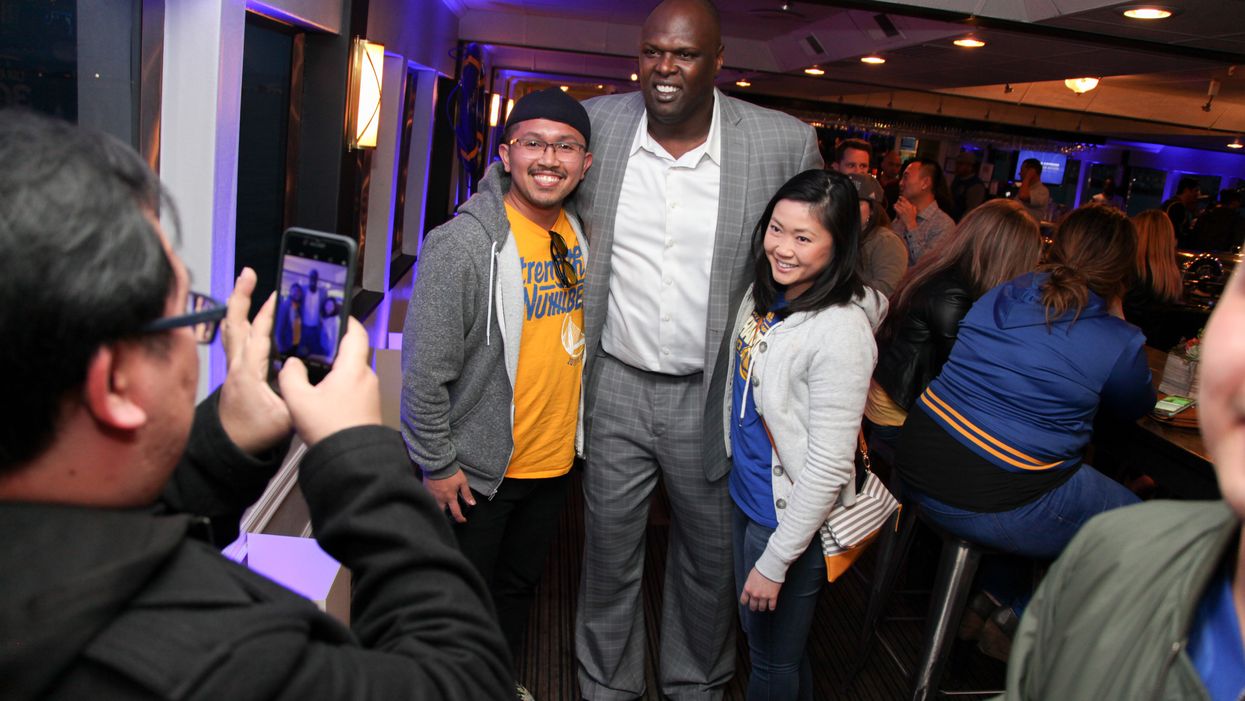Foyle is the founder and president of Democracy Matters, a nonpartisan organization of college students working to reduce the influence of money in politics. He also played 12 years in the NBA, mostly with the Golden State Warriors.
Can you imagine waking up one day to find our democracy gone? To find yourself in a country where rule "by the people, for the people" is replaced with a political system where only the super-wealthy make the decisions and call the shots?
Sadly, this isn't just a thought exercise. It's happening to us right now. When mega-donations by rich political funders determine who runs for office and who wins elections, the foundations of our democracy erode and the peoples' voice is silenced.
Sometimes, the erosion is so slow, we hardly notice. But other times, it results from a single change that threatens our democracy.
On Jan. 21, 2010, the Supreme Court ruled on Citizens United v FEC, opening the door to unlimited anonymous corporate spending in our elections. The result has been to exponentially increase the power of private wealth in politics.
While life as we know it didn't end that day, a decade later the impact of that decision still reverberates.
Citizens United, in essence, says corporate political spending is protected political speech. That means corporations and political action committees can spend as much as they want in support of a candidate, so long as that candidate doesn't receive the money directly or coordinate with the donors about how it is spent.
As we pass the 10th anniversary of that ruling, we wake up to an America struggling to preserve one of our core beliefs — that our government was created to serve the interests of all its citizens. Instead, we have a political system where it is legal for a small group of mega-donors to fund candidates who win elections and then make rules that benefit the donors.
Applied to sports, it would be as if rich gamblers were allowed, by law, to pay off referees to favor one team over another. Sports would be ruined — everyone would know that the games weren't fair. But today our political system is being ruined because of the power of big money in elections.
Politics should be at least as fair as sports! Instead, we are selling our democracy to the highest bidder.
The first five years after Citizens United saw the rise of the super PAC — and the amount of big money in politics exploded. A Brennan Center for Justice report found that fewer than 200 big donors accounted for nearly 60 percent of all super PAC spending between 2010 and 2015. And in the 2016 election, political action committees spent $1.6 billion on behalf of campaigns.
Both super PACs and political action committees funded by the rich are already on track to spend even more in the 2020 election. You can draw a straight line from that money to policies and laws that will benefit the mega-donors — massive tax breaks for the wealthy, drug prices that most Americans can't afford, and weaker environmental regulations among them.
But we don't have to stand by and watch our democracy crumble. It's not too late for us to find a way to put the big money genie back in the bottle.
We can organize and educate our friends and neighbors. We can turn out and vote. And we can urge others to do so as well. If you're a student, you can get in the fight by joining my nonpartisan national student organization.
Right now, there are bills sitting on Senate Majority Leader Mitch McConnell's desk that would not only curb the undue influence of big money but also protect voting rights, especially in communities of color that have historically been discriminated against.
We should demand that our senators give these bills a hearing. And if they refuse, we need to elect senators who will vote to put democracy back where it belongs — in the hands of all the people.
So, don't just sit by and watch our democracy die. Get off the sidelines. Get in the game.



















